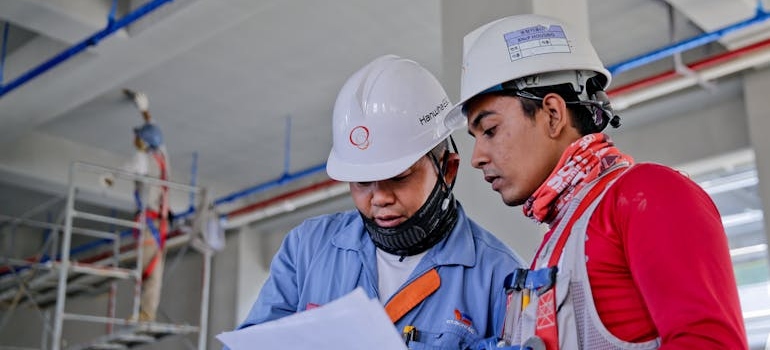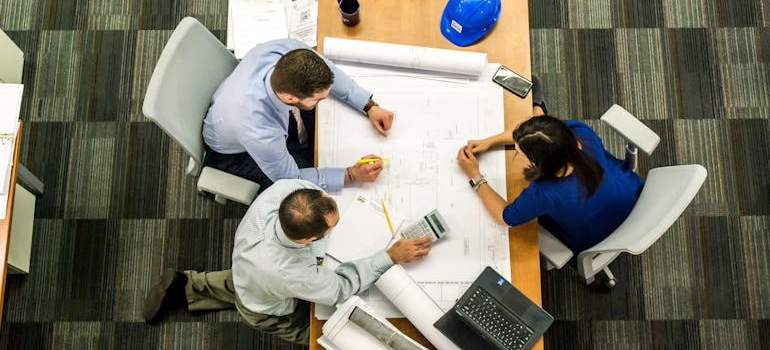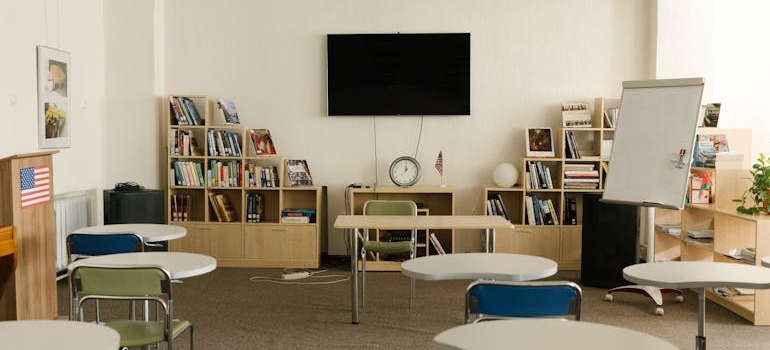Managing Construction Delays in Educational Institution Renovations
Get a QuoteEducational institution renovations require careful coordination and planning to stay on track. Construction delays can result from various factors, such as weather, supply chain disruptions, or unforeseen structural problems. Recognizing these potential issues and having strategies in place can minimize disruptions and keep projects moving forward.
What are the Common Causes of Construction Delays?
Several factors can cause delays during educational institution renovations and identifying them early can help institutions plan better.
Permitting and Regulatory Approvals
Educational institution construction projects often require special permits and approvals from local authorities. Any delays in obtaining these permits can push back the start of the project or cause interruptions during the work. Since educational institutions are subject to strict safety regulations, failing to meet them can halt progress until issues are resolved.
Weather Conditions
Unpredictable weather can slow down construction work, especially when projects involve outdoor areas such as playgrounds, courtyards, or parking lots. Rain, extreme heat, or cold can make it unsafe for workers and delay the timeline. Even with indoor renovations, bad weather can affect transportation of materials or equipment, causing delays.
Labor Shortages
A lack of skilled labor in the construction industry can cause significant delays. Finding the right workers can be especially difficult during busy seasons. If there aren’t enough available workers, projects may be delayed until a full team can be assembled.

Supply Chain Disruptions
Delays in receiving construction materials or equipment can bring renovations to a standstill. Supply chain issues, such as late shipments, damaged materials, or unavailability of certain items, can slow down progress. This is especially relevant for specialized materials or fixtures required in schools, which may have longer lead times.
Unforeseen Structural Issues
Once renovations begin, hidden structural problems might emerge, such as issues with the foundation, asbestos, or outdated plumbing and electrical systems. Addressing these issues takes extra time and resources, which can extend the project timeline.
Changes in Project Scope
New needs may be identified during renovations, leading to changes in the original plan. This can occur due to changes in educational priorities or a reassessment of the academic institution‘s facilities. Any adjustments to the project scope require additional time and coordination, potentially causing delays.
How to Manage and Mitigate Construction Delays in Educational Institution Renovations?
To keep renovations on track, institutions should implement practical strategies to manage potential delays.
Clear Communication with Stakeholders
Keeping everyone informed—teachers, students, parents, and contractors—helps manage expectations and reduce uncertainty. Regular updates on progress, setbacks, and revised timelines allow educational institutions to adjust schedules and keep things running as smoothly as possible. A dedicated communication team can ensure everyone stays on the same page.
Comprehensive Planning and Risk Assessment
Before any renovation begins, conduct a thorough risk assessment. This means identifying potential issues, like bad weather or supply chain problems, and preparing contingency plans. Educational institutions that plan for temporary location changes ensure students and staff are ready for schedule shifts or classroom setups during construction. Anticipating these challenges allows for adjusting timelines and allocating resources more effectively, making it easier to manage unexpected delays or disruptions.

Build Flexibility into the Schedule
Avoid setting tight deadlines for the project. Building in some extra time allows for minor delays without affecting the overall timeline. If the project finishes early, it’s a bonus, but if setbacks occur, there’s already room to accommodate them without causing too much disruption.
Hire Experienced Contractors
Choosing a construction team with experience in educational projects can make a significant difference. Contractors familiar with the specific requirements of educational renovations are more likely to anticipate common delays and have strategies to handle them. An experienced team also works efficiently under pressure, reducing the likelihood of extended delays.
Monitor the Supply Chain
Maintain regular communication with suppliers to track the availability and delivery of materials. Monitoring the supply chain closely helps avoid unnecessary delays caused by late shipments. It’s also helpful to have backup suppliers or alternative materials ready if the original items are unavailable.
Address Labor Issues Early
To prevent delays due to labor shortages, coordinate with contractors well in advance. If possible, schedule work during off-peak times when labor availability is higher. Partnering with reputable companies that maintain a steady workforce can also help reduce the risk of delays caused by a lack of workers.
Prepare for Unforeseen Structural Problems
Allocating additional resources for potential repairs can help plan for unexpected structural issues. Having a budget and timeline buffer in place for such issues can address these problems without significant delays. Conducting thorough inspections before beginning renovations can also be beneficial to identify and mitigate risks early on.
Prioritize Critical Areas
Not all parts of a renovation project are equally important. Work with the contractors to identify which areas should be prioritized. Completing spaces necessary for day-to-day operations, like classrooms or administrative offices, first can help minimize disruption while the renovation continues.
Balancing Renovations with Academic Calendars
Scheduling construction during summer vacations or spring breaks is often the easiest way to avoid disrupting students and staff. However, large projects that need more time might require a different approach. In these cases, breaking the renovation into phases can help. Focusing on one building section at a time ensures that most of the campus remains functional. Prioritizing areas that are less essential to daily operations can also minimize disruptions. For renovations that affect important spaces like classrooms, temporary setups such as portable classrooms can help maintain a stable learning environment while construction is underway.

How Interstate Logistics Supports Educational Institutions in Managing Construction Delays
Managing construction delays is vital to keeping renovations on schedule. Interstate Logistics plays a role in this process by offering comprehensive logistical support. We handle coordination with suppliers, manage shipping timelines, and provide warehouse space for storing furniture and equipment. Additionally, we assist with temporary moves of classrooms or administrative offices, ensuring minimal disruption to daily operations. Our services allow educational institutions to focus on the renovation while we manage the logistical details, reducing delays and keeping projects moving efficiently.
Manage Delays to Keep Renovations on Track
Construction delays in educational institution renovations are often unavoidable, but their impact can be minimized with proper planning and management. Schools that prioritize clear communication, work with experienced contractors, and plan for potential setbacks can ensure their renovation projects are completed as efficiently as possible. While delays may still occur, proactive strategies can help institutions maintain their academic schedules and manage their resources effectively during construction.
